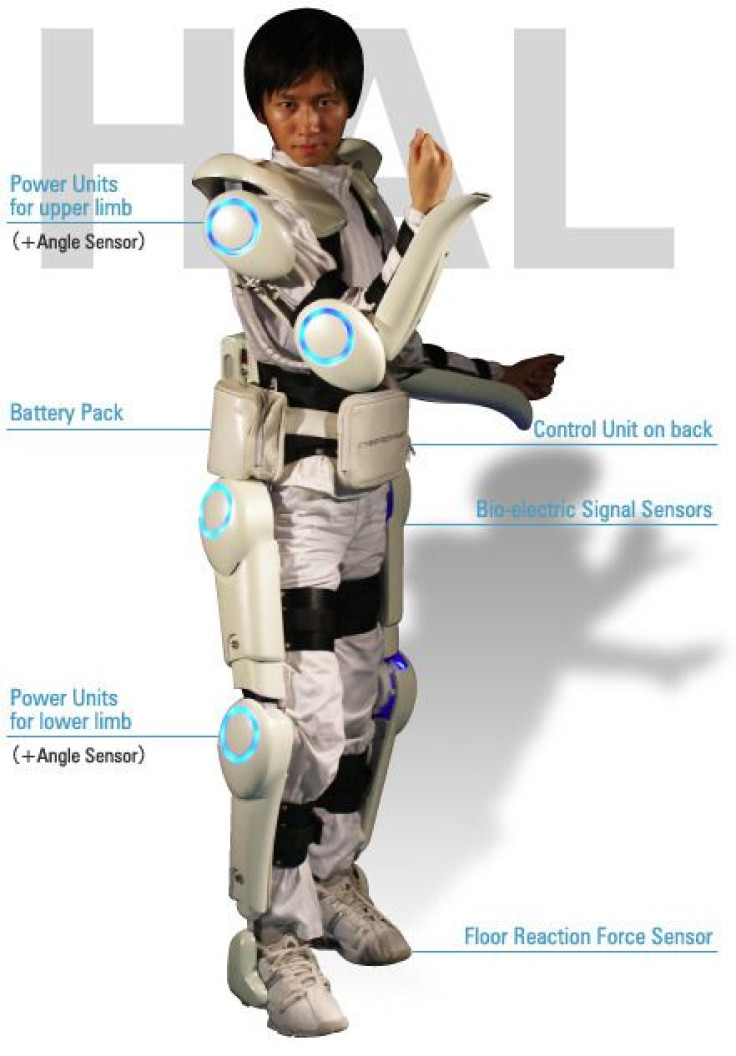Real-Life Bionic Man: Robotic Exoskeleton Passes Safety Tests With Rehabilitation For The Disabled [VIDEO]

The Hybrid Assisted Limb (HAL) robotic suit, a mind-controlled bionic exoskeleton for the disabled, has earned safety approval from Germany. This certification opens the door for its broad distribution across Europe.
Created by the Japanese robotics firm Cyberdyne and Tsukuba University, HAL is built to tap into the body's brain-to-muscle networks, known as the neuromuscular system. When the brain sends a nerve message to a muscle, a residual biochemical signal is emitted towards the skin. HAL is equipped with sensors that detect these faint signals, causing the exoskeleton to move in situations when a physically disabled person could not.
This would only work in cases of incomplete paralysis, where nerve connections between the mind and muscle are only partially disrupted. Incomplete paralysis is more common than complete injuries, so the market for HAL could be quite large.
Cyberdyne started leasing the battery-powered suits to hospitals and senior care centers in 2010, and as of last fall, over 330 were in operation across Japan. HAL comes in two versions — full body or legs only — and has two settings: one that responds to brain voluntary signals and another for "robotic autonomous control system" for automatic motion support.
Earlier this year, Japan gave the suit a global safety certification, which allowed the company to pursue new market abroad.
The suit's newly acquired EC Certificate of Conformity in Germany means it can now be sold in the Bavarian country, which should pave the way to the rest of Europe and the UK.



























